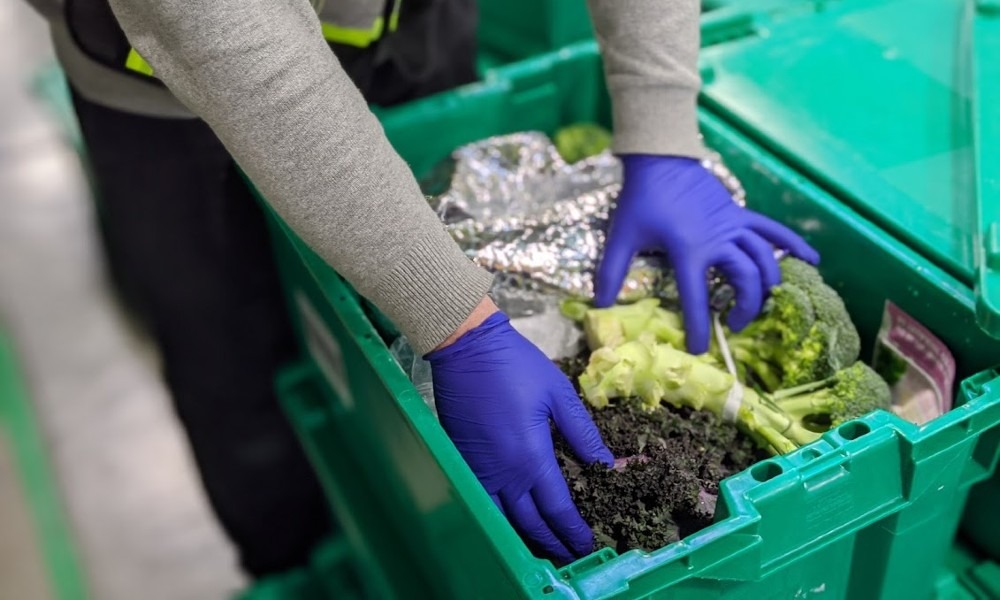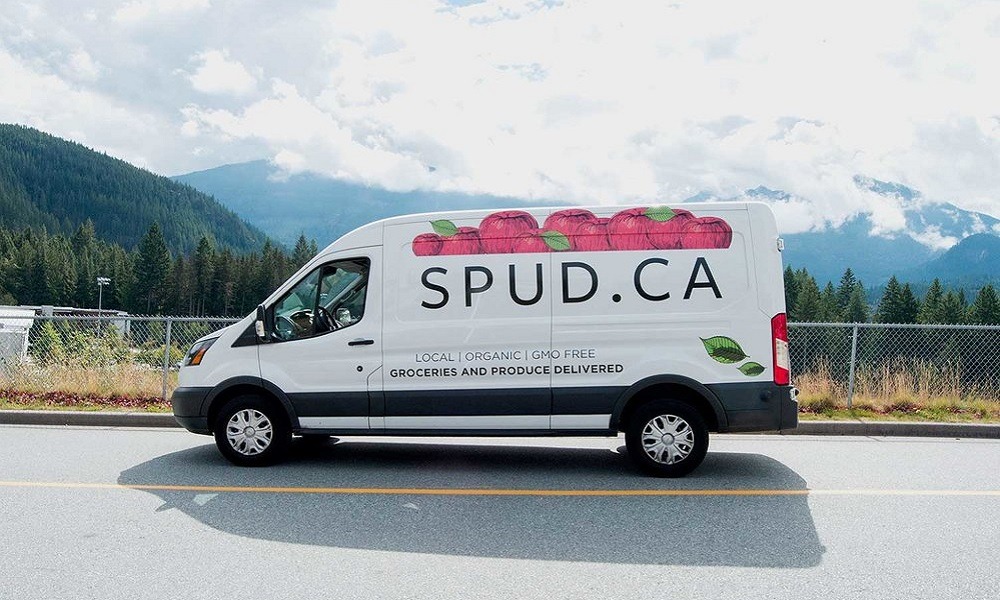Sarah Remmer Registered Dietitian and Spud customer shares her top tips for grocery shopping on…
According to a 2019 study from Second Harvest, Canada’s largest food rescue organization, more than half (58 per cent) of all food that enters Canada’s food system is lost or wasted somewhere along the supply chain. That’s equivalent to nearly 35.5 million metric tonnes, much of which ends up in the landfill.
Some of this waste is “planned”—most of us don’t plan on consuming our eggshells and chicken bones. Other waste—like those leftovers you left for a little too long in the fridge—is unplanned and due to avoidable behaviours. Avoidable food waste accounts for about 32 per cent of Canada’s total food waste, or about $49.5 billion dollars’ worth—enough to feed every person in Canada for the next 5 months.
By David Dodge and Kay Rollans
Green Energy Futures presents, in collaboration with the Alberta Emerald Foundation, Part IV of the Emerald Series: conversations with Alberta Emerald Award winners from the Emerald Podcast series What On Earth Can We Do?
Online grocery store takes a stand on food waste
Sustainable Produce Urban Delivery, or Spud.ca, is an online Alberta grocery store looking to turn the tables on food waste.
Georgie Hyland, the Community Development Coordinator for Spud.ca, says there is a food waste crisis in Canada—and grocery stores are big contributors.
“We can see up to one-third of a grocery store stock being wasted,” Hyland said, “and that’s completely avoidable. It was perfectly good food at one point that could have been sold and eaten.” By comparison, Spud sends only 0.5 per cent of its produce to landfill.
Spud uses its online ordering platform to estimate the quantity of produce they’ll need for a given week to avoid overstocking. They sell imperfect or produce to customers at a discounted rate, and donate anything they don’t sell to local food rescues and banks. They turn their unavoidable waste into compost.
By reducing waste at the retail level, grocery stores can reduce planned and unplanned waste all the way up the food supply chain: if less food is wasted, less food needs to be produced in the first place.

Food waste a huge emitter
Hyland says we should think twice before throwing our food waste in the trash. “A lot of people think, oh, I can just throw my banana peel away and it’ll decompose in the landfill. What’s the difference between composting it and throwing it in a landfill? And there actually is a huge difference.
The difference? Food that breaks down in a properly maintained compost pile undergoes aerobic decomposition process in which oxygen is mixed with the decomposing food, resulting in the production of carbon dioxide and rich, black soil. In the landfill, however, food decomposes anaerobically—without oxygen—and produces methane.
While both carbon dioxide and methane are greenhouse gases, they don’t pack the same punch. “Methane is a greenhouse gas, obviously contributing to climate change. And it is 23 times more damaging to our environment than carbon dioxide,” says Hyland. Methane emissions from landfills
The government of Canada estimates the 20 per cent of methane emissions nationally come from decomposing organic matter in landfills.
Internationally, things really start to add up. According to Hyland, “if food waste was a country, it would be the third-largest emitting country in the world, so more emissions than China and the United States.”

Circular economies and carpooling for groceries
The Second Harvest study cited a “culture of accepting waste” of all kinds as the central cause of Canada’s food waste problem.
Spud wants to change that attitude. “We believe that we’re starting to shift towards a circular economy and we need to be part of the solution,” says Hyland.
They’re starting by taking responsibility for their packaging waste, including those flexible plastic packages that are not conventionally recyclable. Spud will pick up your used packaging, reusing it when possible and responsibly handling the recycling process when not.
“We’re working with specialized recycling companies to properly recycle those items,” says Hyland, adding that the recycled plastic is then made into benches and tiles.
Spud is also reducing its carbon footprint.
As online grocery store, Spud delivers groceries directly to customers’ doors. The company thinks of its delivery system as “carpooling for groceries,” reducing the total number of grocery-related car trips.
They also use efficient routing technology to minimize fossil fuel consumption on delivery runs.
Spud estimated that these strategies saved 300,000 kilograms of carbon dioxide emissions in 2018 alone.

The three Rs of food waste
The average Canadian household wastes over one quarter of the food that comes through the door. This is equivalent to about 14 per cent of Canada’s total avoidable food waste, making consumers even bigger contributors to food waste than grocery stores.
Hyland says it’s essential for consumers to think about what kind of food waste they are producing, as well as why and how they are throwing it away.
Know your garbage so know what you’re throwing out,” she said, “then you can take a step back and say, how, how can I fix this?”
Like other areas of waste management, there are three Rs to remember when dealing with your food waste: reduce the waste you make, recover the food you don’t sure, and recycle your scraps into compost.
Reduce comes first. “Try not to over-purchase,” Hyland recommends. “Plan your meals ahead.” To avoid forgetting about that old head of lettuce you bought last week, she recommends creating spaces in your fridge and pantry for food that needs to be used first.
When you can’t use all the food you have, recover it: get into food preservation, donate non-perishable foods, and support producers, suppliers, and retailers who do the same.
Whatever you do, make sure you recycle. “Don’t throw food scraps in the garbage,” Hyland says. “If you’re in a municipality where it can be collected as compost, do that or start your own compost or give it to a neighbor or give it to a local garden.”
Spud.ca won a 2019 Emerald Award in the large business category. Keep your eyes open this spring for this year’s award winners. Check out the Emerald Foundation’s podcast, What on Earth Can We Do? This story was based on episode 1, Food Waste.
See the original source here: http://www.greenenergyfutures.ca/episode/spud-ca-turns-the-table-on-food-waste-reduces-emissions



